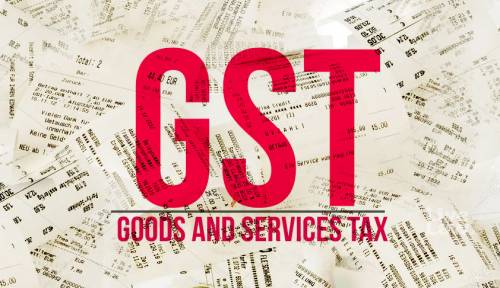GST: CBIC enables GSTR-9 of FY 2019-20 on GST Portal
A statement from CBIC stated that facilitation of filing an annual return on Form GSTR-9 for the 2019-20 fiscal year is now available. The form is enabled for t
- by B2B Desk 2020-12-11 07:25:10
The Central Board of Indirect Taxes (CBIC) has enabled the annual declaration of taxes on goods and services (GSTR-9) for the fiscal year 2019-20 in the GST portal.
A statement from CBIC stated that facilitation of filing an annual return on Form GSTR-9 for the 2019-20 fiscal year is now available. The form is enabled for taxpayers who have completed the calculation of Annex 8A. Table 8a calculates the aforementioned revenue for the automatic rebate count, which is likely to be completed soon. Make sure you submit all valid returns for the year listed before attempting to submit the statement listed above.
GSTR-9 is an annual return filed annually by taxpayers registered under GST. It consists of details about the outgoing and incoming supplies made / received during the relevant previous year under different tax headings, i.e. CGST, SGST, IGST and HSN codes. Essentially, it is a combination of all the monthly / quarterly returns (GSTR-1, GSTR-2A, GSTR-3B) deposited in that year. Although this performance is complex, it helps with full data reconciliation for 100% transparent disclosures.

The late fee for not filing GSTR 9 by the due date is Rs 100 per day, per act. This means that in case of delay, delay charges of Rs 100 in CGST and Rs 100 in SGST will apply. Therefore, the total liability is Rs 200 per day of default. This is subject to a maximum of 0.25% of the taxpayers' sales volume in the relevant state or territory of the union. However, there are no late fees at IGST yet.
It should be noted that the annual refund deposit (FORM GSTR-9 / GSTR-9A) for 2018-19 is optional for taxpayers who have a total turnover of less than Rs. 2 crore to Rs. Filing a reconciliation statement on Form 9C for 2018-19 is also optional for taxpayers with a total billing of Rs. 5 crore.
Also Read: How reimbursement of WFH expenditures can be tax-exempt for employees
POPULAR POSTS
GST 2.0 Rollout Begins: New 5% & 18% Tax Slabs, Cheaper Essentials, and Helpline 1915 Explain
by Shan, 2025-09-22 10:20:19
GST Overhaul Explained: New 5% and 18% Slabs, 40% Tax on Luxury Goods
by Shan, 2025-09-04 11:53:34
Modi’s Diwali Gift: New GST Rates Slash Prices on Electronics, FMCG & More
by Shan, 2025-08-21 12:28:30
Jio Finance Launches Income Tax Filing at ₹24: How to File ITR Easily in 2025
by Shan, 2025-08-13 10:08:52
Income Tax Bill 2025: Lok Sabha Panel Backs Deductions for Late Filers
by Shan, 2025-07-22 12:28:58
Karnataka GST Crackdown: Why Shopkeepers Are Ditching UPI Payments
by Shan, 2025-07-16 12:14:56
GST Council Likely to Consider Lowering Tax on Online Food Delivery Fees
by B2B Desk, 2024-12-17 08:26:30
RECENTLY PUBLISHED

Loan EMIs to Drop as RBI Slashes Repo Rate - Full MPC December 2025 Highlights
- by Shan, 2025-12-05 11:49:44

Pine Labs IPO 2025: Listing Date, Grey Market Premium, and Expert Outlook
- by Shan, 2025-11-05 09:57:07

The Agentic Revolution: Why Salesforce Is Betting Its Future on AI Agents
- by Shan, 2025-11-05 10:29:23

Top 10 Insurance Companies in India 2026: Life, Health, and General Insurance Leaders Explained
- by Shan, 2025-10-30 10:06:42

OpenAI Offers ChatGPT Go Free in India: What’s Behind This Big AI Giveaway?
- by Shan, 2025-10-28 12:19:11

Best Silver Investment Platforms for 2025: From CFDs to Digital Vaults Explained
- by Shan, 2025-10-23 12:22:46




 Subscribe now
Subscribe now 